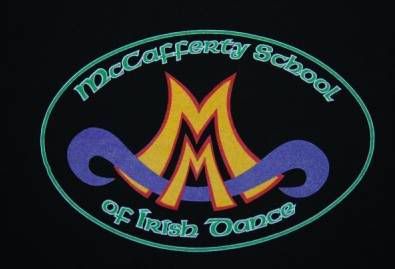These are phrases that every adoptive parent from China should know...at least if you child speaks Mandarin. If they speak Cantonese, sorry, I can't help you. These are particularly helpful with an older child. Heck, half of these I learned either through our guide in China or since we've been home. So here goes:
Ni Hao (knee how)- hello
Ni Hao Ma? (knee how mah?)- how are you?
Hao (how)- good
Hen Hao (hen how)- very good
Xie Xie (she-eh she-eh)- thank you
Bu Ke Qi (boo kuh chi) - you're welcome
Hao De (how duh)- okay (usually said twice and used on the phone a lot, I don't know if they usually use this to say 'it's okay' but we did and it helped with Kai Jin)
Bu Ku (boo koo)- don't cry
Gui Gui (gway gway)- good girl/boy (usually only used for young children. Kai Jin is 2 and it was okay for her, but Nan Rui was 6 and he didn't appreciate it much)
Niao Niao (knee-ow knee-ow)- I have no idea what the direct translation is, but it, more or less, means 'Bathroom NOW'
Nu Nai (noo nai (rhymes with 'eye'))- means milk, but Kai Jin uses it for yogurt
Wei Jia (way gee-ah)- she says this when she wants her sippy cup
Shui (sh-way)- water
Wo Ai Ni (whoa eye knee)- I love you
Wo Shi Ni De MaMa (whoa sure knee duh mah mah)- I am your mother (can replace MaMa with any family member title)
Jie Jie (gee-eh gee-eh)- big sister
Mei Mei (may may)- little sister
Di Di (dee dee)- little brother
Ge Ge (guh guh)-big brother
BaBa (bah bah)- Daddy
Nai Nai (rhymes with eye)- paternal grandmother, but Kai Jin called both our maternal and paternal grandmothers this
Ye Ye (yuh yuh)- paternal grandfather
Wai Po (w+eye po) or Lao Lao (l-ow l-ow)- maternal grandmother
Wai Gong (w+eye gong) or Lao Ye (l-ow yuh)- maternal grandfather
Yi Ma (yee mah)- maternal aunt
Jiu Jiu (gee-ew gee-ew)-maternal uncle
Gu Gu (goo goo)-paternal aunt
Bo Bo (bow bow)- father's older brother/uncle
Shu Shu (shoo shoo)- father's younger brother/uncle
Jia (gee-AH)- family
Ni Shi Wo De Mei Mei (knee sure whoa duh may may)- you are my little sister
Tan Zi (Taan Zee)- blanket
Ce Suo (Suh Swoh)- bathroom
Tai Ji (tie gee)- birthmark
Mei Guo (may gwoh)- United States
Mei Guo Ren (may gwoh Shin)- American person (Ren is actually not pronounced exactly like 'shin' but I can't romanize the pronounciation)
Mao (m-ow)- cat
Gou (go)- dog
Xiao (she-ow)- little/small
Da (dah)- big/large
wo (whoa)- I/me
wo de (whoa duh)- my/mine
ni (knee)- you
ni de(knee duh)-your's
ta (tah)- he/she (pronounced the same, the characters are different though)
wo men (whoa men)- we
ta men (tah men)- them
ting (teeng)- STOP! (like when your kid goes running for the street 'TING!'. Worked with Kai Jin)
Nu (noo)- female
nan (naan)-male
Zai Jian (z-eye gee-anne)- Good bye
Bu (boo)- no
Dui (dway)- yes
Qing (ching)- please
Dui Bu Qi (dway boo chi)- sorry
Nu Er (noo are)- daughter
Er Zi (are zuh)- son
yi (yee)- one
er (are)- two (number 2)
liang (lee-aang)- two, use in reference to things, like 2 kids, or 2 pencils
san (saan)- three
si (suh)- four
wu (woo)- five
liu (lee-ew)- six
qi (chi)- seven
ba (bah)-eight
jiu (gee-ew)- nine
shi (sure)-ten
jiao zi (gee-ow zuh)- dumplings
Thanks to Annie for these suggestions, some of which I feel stupid for having forgotten.
mei you (may yo)- don't have
you (yo)- have
wo kan (whoa khan)- Let me see!
wo gei ni (whoa gay knee)- this is for you (give or take a bit)
ni yao bu yao wo bang ni? (knee yow (rhymes with how) boo yow whoa bong knee)- do you want me to help you?
mei guanxi (may gwan she)- no problem, don't worry
That's all for now. Any suggestions to be added are appreciated. Also, remember Mandarin is a tonal language and, as such, these pronounciations are just as close as I can get them without everyone knowing how the tones work. And that's not really common knowledge. But people in China hardly expect you to be able to pronounce everything anywhere near correctly. If you get in the same ball park, they tend to be impressed. If you get it perfect, they're in shock.






3 comments:
Monica, Thanks for taking the time to list these out. I am printing it out to start practicing now! Thanks! Paula
Good list Monica! I'd add "wo kan!" (let me see) at least with older kids and digital cameras- I must have heard that 800 times if I heard it once. "wo gei ni" (roughly, this is for you) is a useful phrase too, as is "ni yao bu yao wo bang ni?" do you want me to help you. Oh, and the all important "mei guanxi" (no problem, don't worry) you (to have) and mei you (not to have) are also useful to know.
Monica,
I'm studying Mandarin also. This list is a great reminder. Thanks so much for posting it.
Charity
lid 7/22/6
Post a Comment